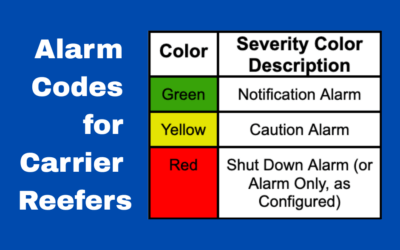When your engine fails or starts showing signs of serious wear, you're faced with a big decision: Should you replace it with a rebuilt or a remanufactured engine? While the two options may sound similar, there are significant differences that can affect the...
All About Reefers
Reefer Breakdown? Saving Cargo During Reefer Trailer Repairs
You're loaded with temperature-sensitive cargo, up against a tight delivery window—and suddenly, your reefer unit breaks down. It's a worst-case scenario for any driver or fleet manager. The clock is ticking, and your full load of cargo is at risk. At Crosspoint Power...
Refrigeration Unit 101: Keeping Perishables Safe on the Road
When you’re hauling perishable goods—whether it’s food, medicine, or temperature-sensitive chemicals—there’s one component you can’t afford to overlook: the refrigeration unit micro. This critical component of refrigerated transport monitors and maintains precise...
Carrier Alarm Codes: What They Mean and How to Fix Them
Carrier refrigeration units are trusted for transporting temperature-sensitive goods, but when an alarm code appears, it can bring your operations to a halt. Whether you're a technician, fleet manager, or cold chain operator, understanding Carrier alarm codes is...
Reefer vs. Dry Van: Understanding the Differences and Costs
If you're familiar with transportation and logistics, you've likely heard about dry vans and reefers. These terms refer to the cargo area of trucks or trailers, with dry vans used for non-refrigerated products, and reefers designed to carry temperature-controlled...




